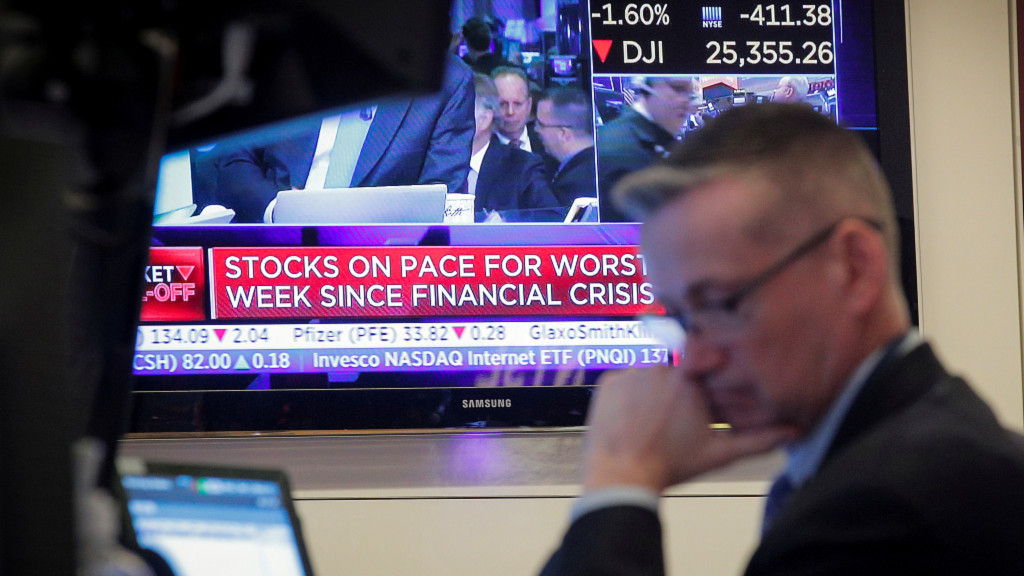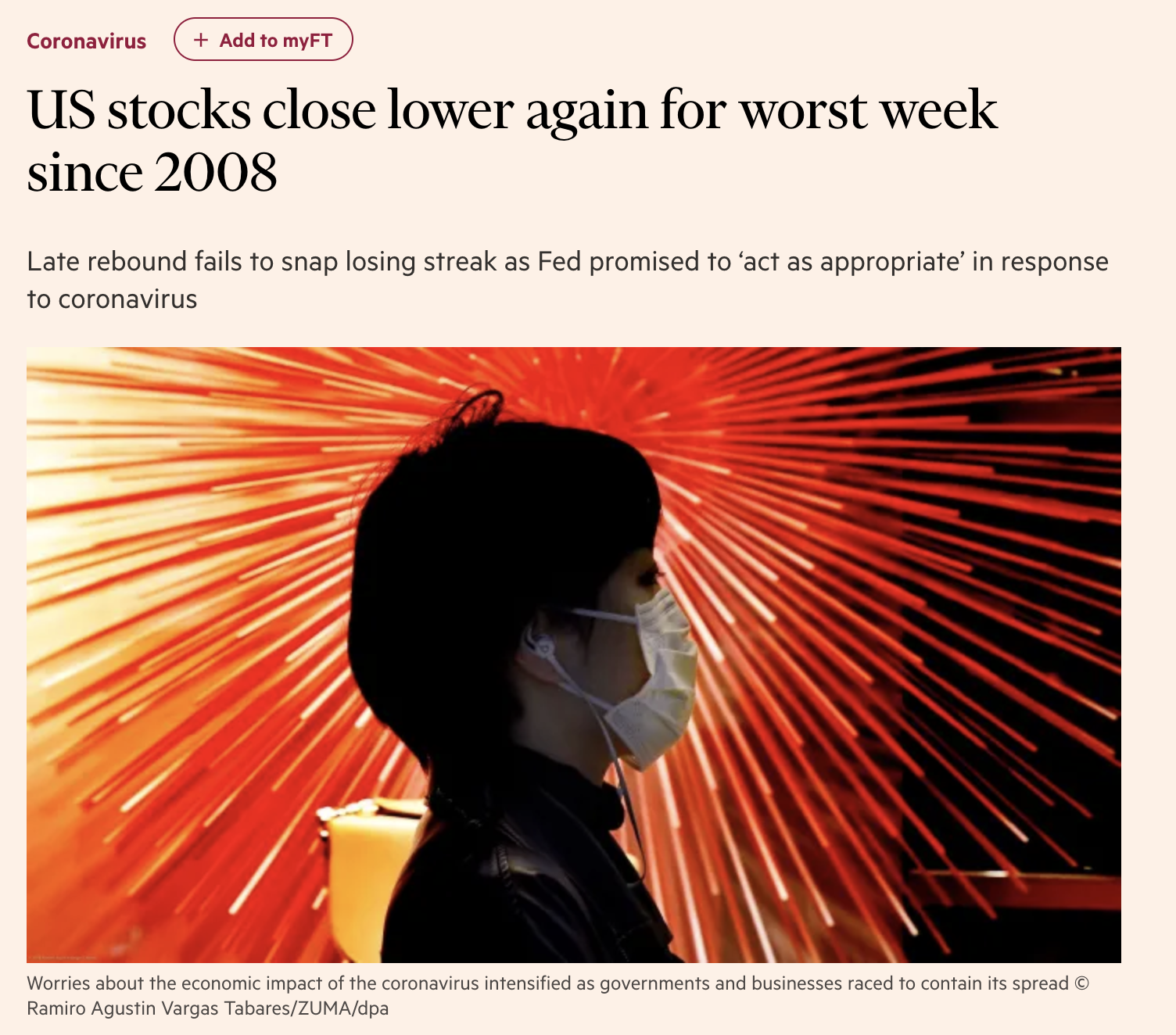
Traders work on the floor at the New York Stock Exchange (NYSE) in New York, U.S., February 28, 2020. /VCG
Traders work on the floor at the New York Stock Exchange (NYSE) in New York, U.S., February 28, 2020. /VCG
Editor's note: CGTN's First Voice provides instant commentary on breaking stories. The daily column clarifies emerging issues and better defines the news agenda, offering a Chinese perspective on the latest global events.
As coronavirus spreads, so does fear.
But it's not just the fear of infections but also disruptions to the economy and global supply chains. U.S. stock market had its worst week since the 2008 economic crisis. Asian stock markets also stumbled over the last week, with the Nikkei 225 shedding 11 percent.
The number of infected cases is still on the rise and a potential global outbreak could be close. Investors are rushing into haven assets, dragging down 10-year Treasury yield again. As the World Health Organization adjusted the risk assessment of the COVID-19 to "very high," it seems that the bottom has yet to come.
"The loss of U.S. stock market is partly due to expectations of a bad economic outlook," said Wang Jianhui, deputy general manager of the research and development department at Capital Securities. As the outbreak spreads across the world, international trade and logistics would be severely disrupted, at least on a temporary basis. Naturally, supply chains will experience shock.
Take the supply of face mask for example. China accounted for 30-50 percent of the world's production capacity. As Chinese people are still anxiously searching for masks, there has already been a shortfall of 270 million face masks in America. While Chinese factories have yet return to pre-outbreak production capacity, there are likely to be more medical supply shortage in the future.
"There's also a technical factor for this adjustment," added Wang. "American stock market has been a bullish one over the past few years – which is not really how the market works. There will always be ups and downs. You cannot only have one side. This delayed process has been sped up due to the current outbreak."
But should we compare the current disruption to the 2008 economic crisis and expect a more prolonged recession even after the outbreak?

Worries over global economy have grabbed the headlines. /Screenshot via Financial Times website
Worries over global economy have grabbed the headlines. /Screenshot via Financial Times website
Perhaps not.
The 2008 economic breakdown was due to internal and structural reasons. Compared with external factors such as a virus outbreak, the 2008 crisis would have a much more severe ripple effect and longer-lasting damage. Federal Reserve chair Jerome H. Powell also comforted the market that "fundamentals of the U.S. economy remain strong." The Fed also promised to take appropriate measures to support the economy. To many, that means interest cuts.
But there is a dilemma. Wang pointed out that the impacts of the outbreak on the real economy has started to show, but it would take a longer time for the interest cuts to be effective in real economy. In the meantime, the Fed has not seen ample evidence for it to cut interest rates now. So expectations on interest cuts would not immediately be translated into the stock market rise.
One should also note that on the stock market, there will always be the case of irrationality, such as the panic sell-off for the past few weeks. For investors to pick up their confidence, there have to be some concrete signs that the current outbreak is under control.
Fortunately in China, the latest data seems to suggest that the situation has stabilized. On Friday, there were only four new confirmed cases outside Hubei; the number of discharged patients has, for the first time, surpassed the total confirmed cases.
Given this, perhaps one should not feel too discouraged about the newly released PMI data of February: the number has hit a historic low at 35.7, meaning the manufacturing activities contracted sharply last month. The contraction is mainly due to the aggressive control measures that the Chinese government taken, which resulted in a delayed resumption of factory work, and a sharp decline of demand.
Progress always comes at a cost. And China's strict measures are paying-off. As the government release more financial measures to support the economy, it is expected that a rebound is coming soon. On a global level, the time is now to act swiftly on the outbreak to avoid further damage.
Scriptwriter: Zhao Yuanzhen
(If you want to contribute and have specific expertise, please contact us at opinions@cgtn.com.)